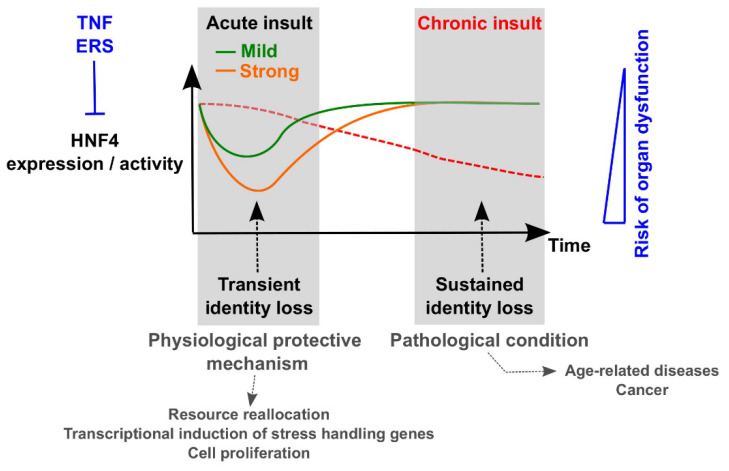Figure 2.
Proposed relationship between strength and duration of organ insults and HNF4-mediated control of cell identity. Acute injury triggers loss of HNF4 transcriptional activity through decreased expression and/or chromatin recruitment, with the degree of the inhibition correlating with the severity of the insult. HNF4 loss is accompanied by a shutdown of cell identity, partly attributable to a collapse of the TF networks controlling identity gene expression. This loss is transient (i.e., expression of HNF4 and other identity TFs is re-established once the stress resolves) and seems to be a protective mechanism to cope with the acute insult in the context of reallocation of transcriptional resources. However, when the insult persists leading to chronic stress/injury, repression of HNF4 and cell identity endures, which might precipitate accompanying organ dysfunction and occurrence of cancer.

